10 Most Common Baby Illnesses That You Can Treat Naturally
Whether your child has a tummy ache, a stuffy nose, or a bug bite, doctors say old-fashioned home remedies are often the best way to help him feel better fast. These time-tested treatments rarely have side effects, are cheap, and use items you probably already have on hand. Here we will discuss the most Common Baby Illnesses that you can treat naturally at home.
While parenthood is both wonderful and awful at the same time, all parents need to be prepared to handle some common health problems in babies.
As each child is unique and their immune systems develop individually, the type and severity of health issues can vary from one child to another.
Of course, you should always contact your pediatrician if your child’s problem seems serious. But the next time your child has a minor pain or injury, you can find these clever solutions throughout your home.
 Here are the Natural Treatments for the top 10 Common Infant illnesses and how to deal with them.
Here are the Natural Treatments for the top 10 Common Infant illnesses and how to deal with them.
1. Colic- A Common Infant illness
This is a very common health problem in newborns, and those who suffer from it are often referred to as colicky.
It usually begins in the second week of life and continues until about 3 months of age. About 20 to 25 percent of babies experience colic, according to the American Pregnancy Association. (1)
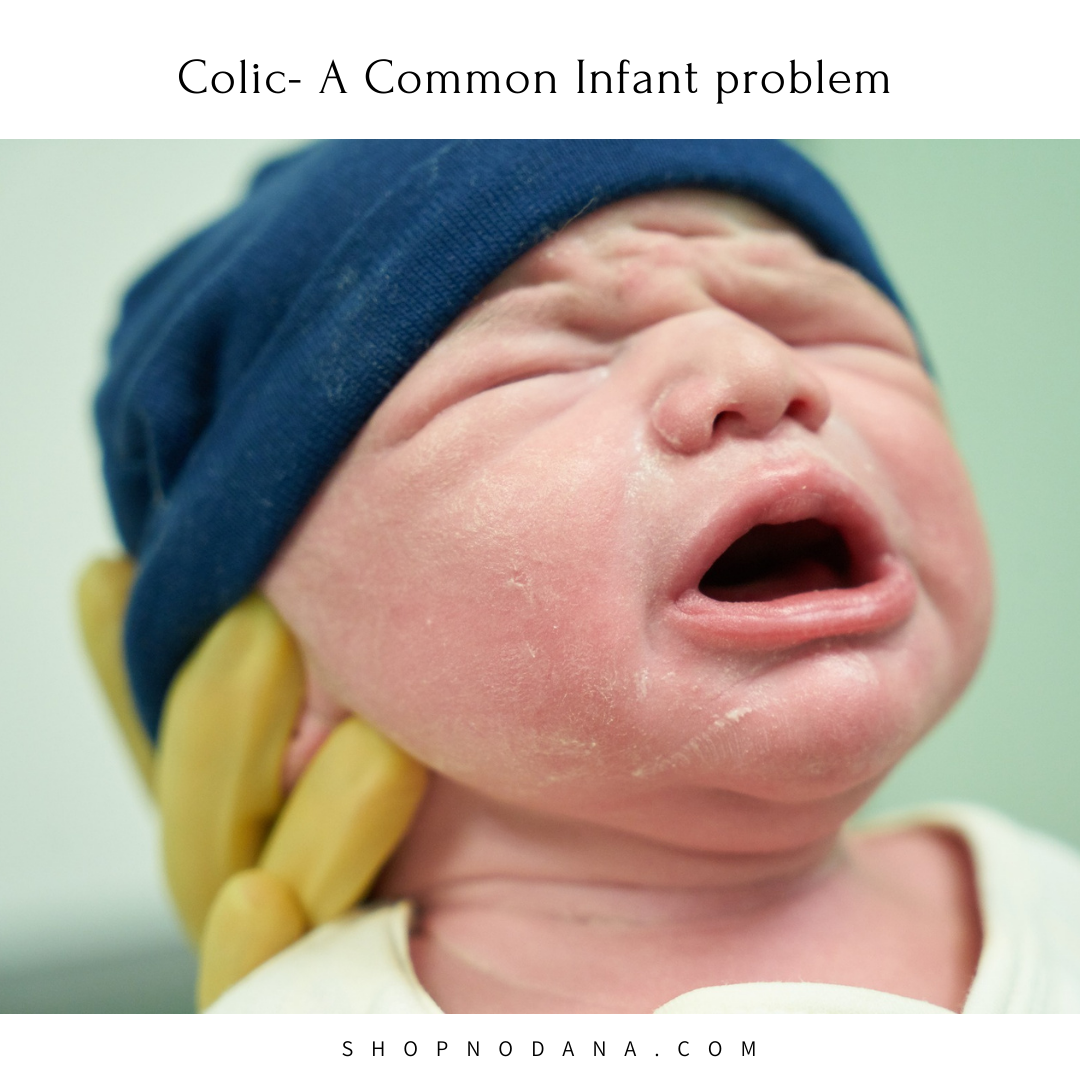
The exact cause of colic is unknown, but many health experts believe that it could be due to air trapped in the abdominal cavity causing pain and discomfort.
- To soothe a colicky baby, a warm bath will help distract him and make him sleepy. A warm compress placed on a baby’s tummy relieves gas and has a calming effect.
- To prevent colic, burp your baby frequently and hold your baby as upright as possible. Also, nursing mothers should closely monitor their diet.
Read also
15 Best Baby Monitor-What is a Baby Monitor and How does it Work?
Side Effects and Benefits of Folic Acid for Girls Hair, Skin and Health
2. Gastroesophageal Reflux- Infant reflux
Another common problem in children is gastroesophageal reflux disease (GER), which is also referred to as gastroesophageal reflux disease.
Reflux in healthy infants occurs several times a day. As long as your baby is healthy, satisfied, and growing well, reflux is not a cause for concern.
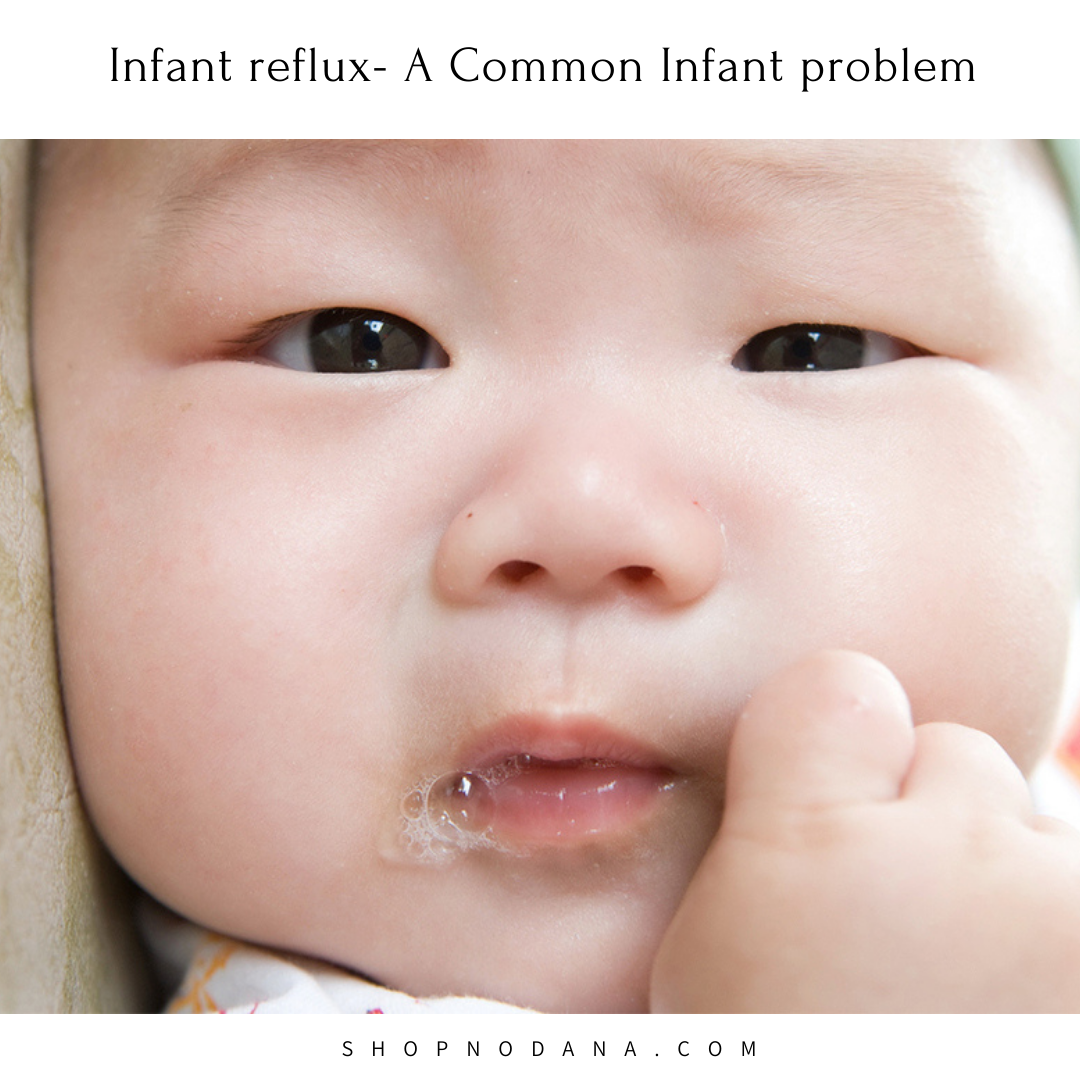 When your baby has GER, stomach contents back up into the esophagus, causing your child to spit up a fluid made up mostly of saliva and stomach acid.
When your baby has GER, stomach contents back up into the esophagus, causing your child to spit up a fluid made up mostly of saliva and stomach acid.
Nearly half of babies spit up multiple times per day in the first three months of life, according to the US National Institute of Diabetes and Digestive and Kidney Diseases. (2) The issue was resolved when the infant reached 12 to 14 months of age.
Some of the factors that can put your baby at risk for GERD include being born prematurely, lying flat most of the time, and following a liquid-only diet.
- To prevent infant reflux or GER, keep your child’s head, crib, or bed elevated with the help of some towels. Also, try to get your baby to sleep on his back or left side.
- While feeding, have your baby sit upright on your lap and avoid placing your baby on the floor immediately after feeding.
- Regular abdominal massage is also a good way to improve the functioning of the digestive system in children. Tenderly massage your baby’s tummy using some oil like coconut oil, olive oil, or other you like. do this softly in a clockwise direction for 3 to 4 minutes, twice daily. However, never massage your baby right after a feeding.
3. Teething Pain in Babies
Teething pain can turn even the most relaxed baby into a difficult one.
Babies have teething problems as soon as their first set of teeth starts showing through the gums. Teething usually begins between 6 and 8 months of age, and it can take up to two years for all the teeth to appear
Apart from pain, children may have other symptoms such as excessive drooling, irritability, tendency to bite things, insomnia, low fever, decreased appetite, and pulling at the ears or rubbing the chin or cheeks.
- To soothe the discomforts related to teething, the best option is to offer your baby a long piece of cooled carrot, cucumber, or celery. The cool temperature will help soothe sore gums and the juice will keep the baby full.
- Another option is to gently massage the inflamed gums to reduce pain and soothe a fussy baby.
4. Diaper Rash
Diaper rash is another common problem that parents have to deal with.
Diaper rash is characterized by dermatitis and rashes on the thighs, buttocks, and genital area. The main cause is prolonged exposure to soiled diapers, which can be either wet with urine or soiled with feces.
 This type of rash can cause a lot of inconveniences and if not treated in time, it can lead to a bacterial or yeast infection.
This type of rash can cause a lot of inconveniences and if not treated in time, it can lead to a bacterial or yeast infection.
- To relieve pain and inflammation due to diaper rash, coconut oil is highly effective. Gently apply a little coconut oil to the diaper area several times a day. It will help keep the area moist and prevent microbes from causing an infection.
- Vinegar is another good home remedy. Add 1 teaspoon of white vinegar to 1 cup of water. Use this solution to wipe your baby’s bottom when changing his nappy.
- If you are using reusable or cloth diapers, be sure to clean them well and rinse them in a solution of ½ cup of vinegar to ½ bucket of water.
5. Gas Problem in Babies
Children’s bodies learn how to digest food, so they tend to have more gas than adults. Gas is air in the stomach or intestines, but for some children, it appears to be very painful.
When a child has gas, small bubbles appear in his stomach or intestines, sometimes causing pressure and stomach pain.
Some babies become restless and can’t sleep until the gas is out. Others cry for hours.
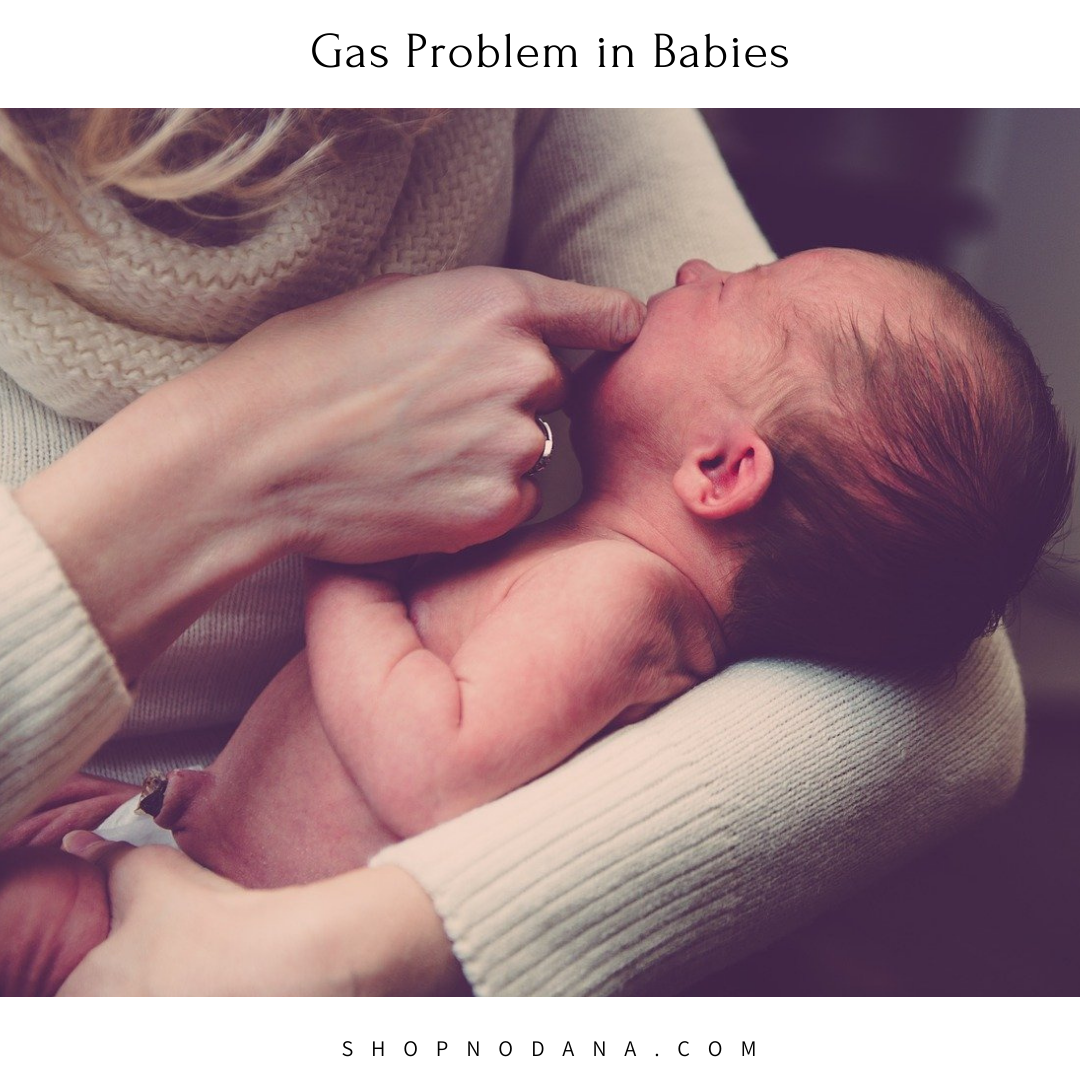 Young children can also develop gas due to the use of antibiotic medications, lactose intolerance, eating gas-forming foods, not chewing food well, swallowing large amounts of air, and not drinking enough water.
Young children can also develop gas due to the use of antibiotic medications, lactose intolerance, eating gas-forming foods, not chewing food well, swallowing large amounts of air, and not drinking enough water.
- For the treatment of any kind of gas problem in babies, asafoetida is very effective due to its antispasmodic and anti-flatulent properties. Dissolve a pinch of asafoetida powder in a tablespoon of warm water. Apply it around your baby’s navel in a clockwise direction. Reposition as needed.
- Another option is to put a warm compress on your baby’s tummy to help expel the trapped gas and relax the baby.
6. Constipation in infants
Not only adults, but even young children also suffer from constipation.
A child is more likely to be constipated if their bowel movements are less frequent than usual. Also, babies may have to strain more than usual to pass stools. Other signs include blood in the stool, flatus, and refusal to eat.
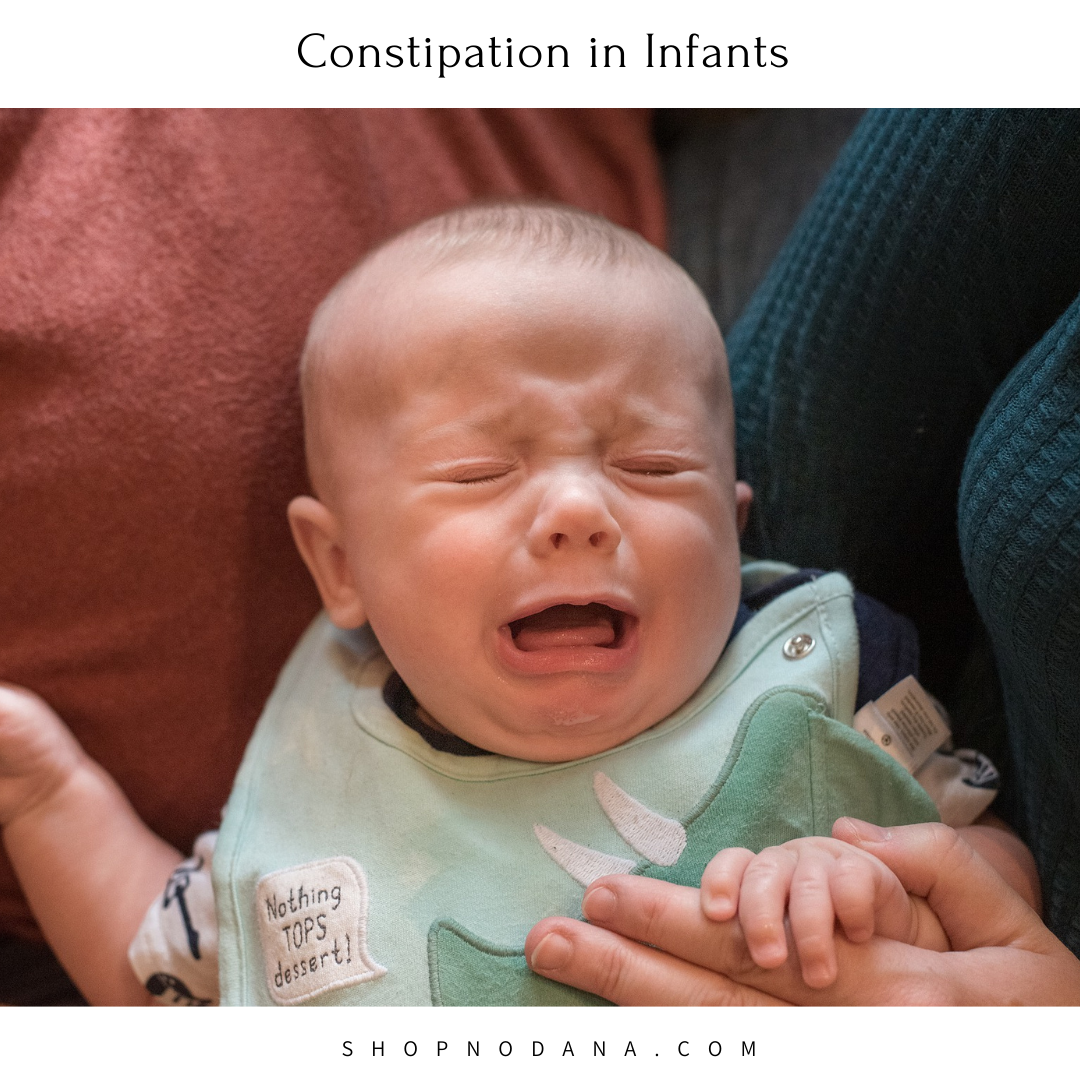 Constipation in babies can be caused by the introduction of new solid foods and ingredients used in infant formula, lack of activity, and dehydration.
Constipation in babies can be caused by the introduction of new solid foods and ingredients used in infant formula, lack of activity, and dehydration.
- When your child suffers from constipation, the best thing you can do is to feed him a little yogurt containing live cultures from time to time. These probiotic products ensure healthy digestion.
- Also, don’t forget to increase fluid intake for proper hydration, which is essential for regular bowel movements. Water and milk are the best fluids for babies.
7. Fever
Fever is a common sign of illness and normal response of a child’s immune system to a virus or bacterial infection.
In a healthy child, the fever can last for 3 to 5 days under normal conditions.
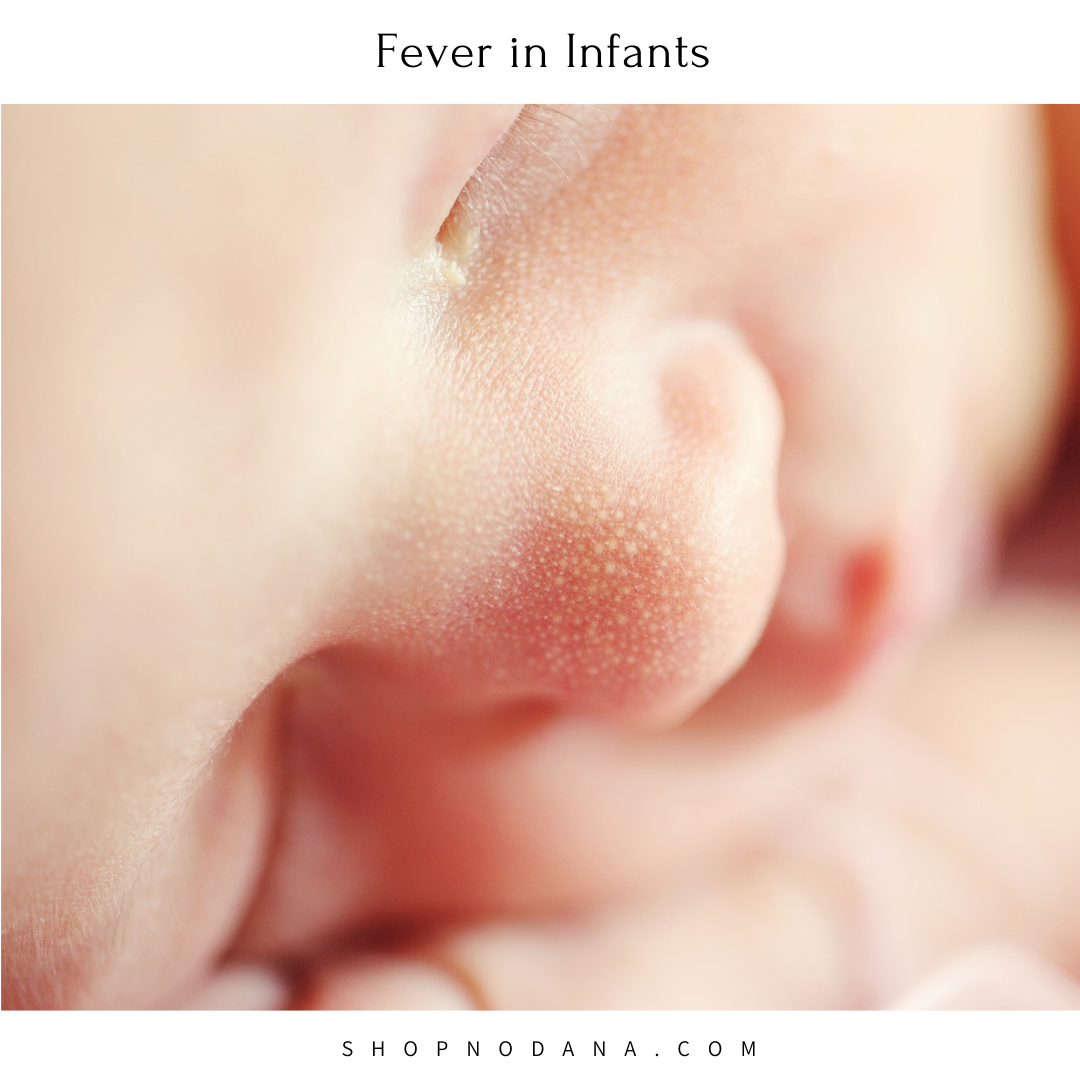 The most common cause of fever in children is a viral infection. Other causes include teething, change in the environment, etc.
The most common cause of fever in children is a viral infection. Other causes include teething, change in the environment, etc.
A slight fever is not a cause for concern, but if the temperature is persistently high, see a doctor immediately.
- Once your child has a fever, give him a sponge bath. Also, place a cool, wet washcloth on your child’s forehead from time to time to help bring the temperature down faster.
- For breastfeeding mothers, breastfeeding your baby will help a lot. Breast milk is full of nutrients that strengthen the weak immune system of the baby.
8. Common Colds in Babies
Colds are one of the most common illnesses in babies. In fact, within the first year of their life, most babies have up to seven colds.
It is a type of viral infection that begins with nasal congestion and a runny nose. Other signs and symptoms of a common cold in children are mild fever, sneezing, coughing, loss of appetite, irritability, difficulty sleeping, and refusal to breastfeed or take a bottle due to nasal congestion.
 Babies are very vulnerable to colds due to their weak immunity. The problem is common in children who are often around older children or spend time in child care centers.
Babies are very vulnerable to colds due to their weak immunity. The problem is common in children who are often around older children or spend time in child care centers.
- To reduce congestion and relieve a sore throat, offer your child plenty of fluids.
- You can also use saline drops or spray to moisten your child’s nasal passages. A cool-mist humidifier is also helpful, as it will help your child breathe more comfortably
9. Vomiting and Diarrhea of Babies
Vomiting and diarrhea are common in young children. Also known as stomach or abdominal dysfunction, the main cause of this problem is gastroenteritis.
Gastroenteritis is an infection of the intestine usually caused by viruses or bacteria, which also cause diarrhea.
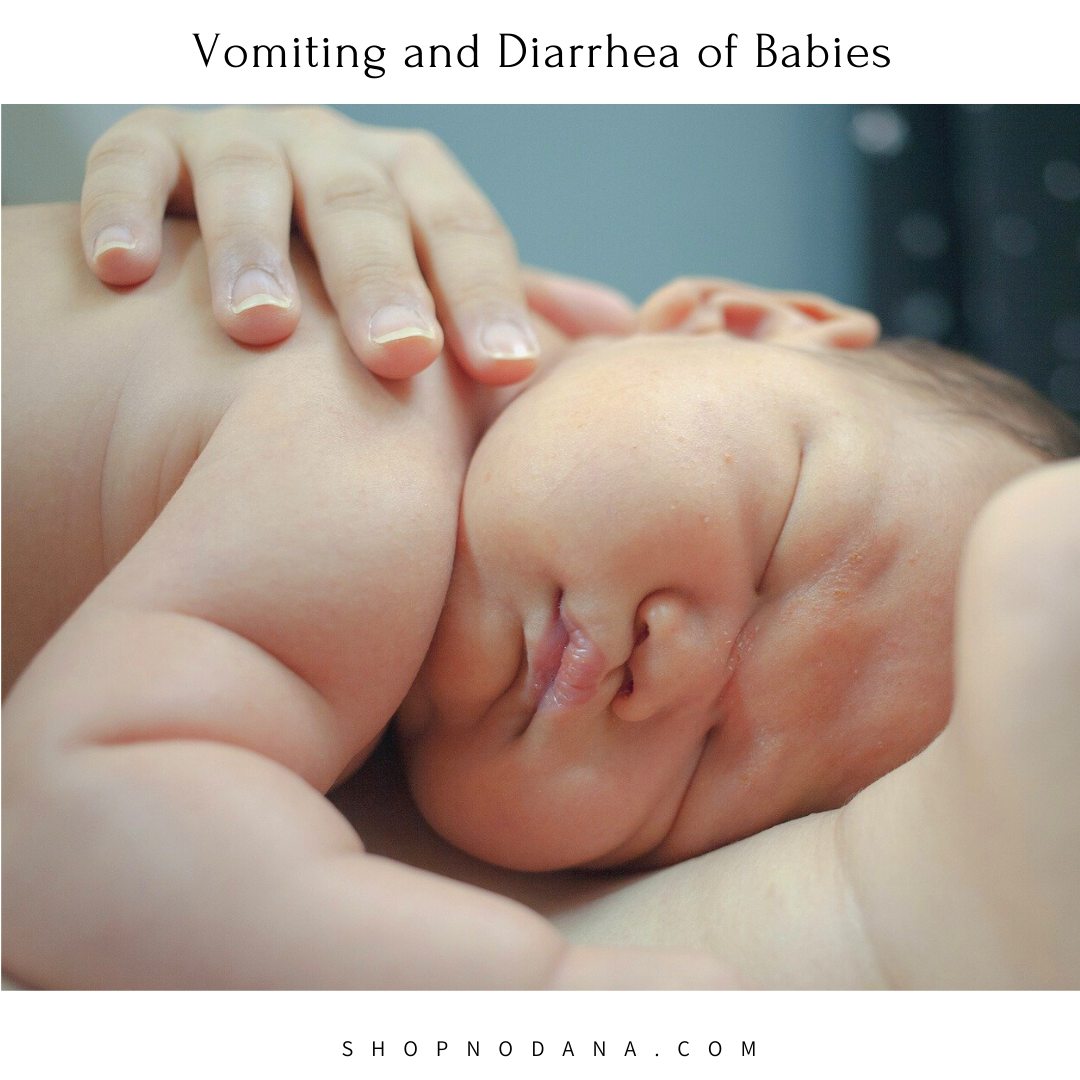 Other causes include food allergy or milk intolerance, gastroesophageal reflux disease, swallowing too much milk or liquid because the opening in the nipple of the bottle is too large, or accidentally swallowing something poisonous.
Other causes include food allergy or milk intolerance, gastroesophageal reflux disease, swallowing too much milk or liquid because the opening in the nipple of the bottle is too large, or accidentally swallowing something poisonous.
It is important to treat vomiting and diarrhea quickly or else your child may become dehydrated, which can be dangerous, especially in very young children.
In most cases, you can safely treat your child’s vomiting and diarrhea at home.
- Most importantly, get your child to drink fluids to prevent dehydration. You should continue to breastfeed or give them milk. You can also give your child an oral rehydration solution, but only after consulting your doctor.
- For slightly older children, you can feed them plain yogurt or bananas to help treat diarrhea.
- Also, take extra hygiene measures while your child is sick to help stop diarrhea and prevent the spread of infection.
10. Breathing problems is one of the common baby illnesses
Occasional breathing problems in children are also common.
Difficulty breathing in children can be caused by colds, asthma, or respiratory infections such as croup, bronchitis, and pneumonia.
 Common symptoms related to breathing difficulties or the underlying cause include a hoarse voice, rapid breathing, wheezing, mild cough, mild fever, and nasal and chest congestion.
Common symptoms related to breathing difficulties or the underlying cause include a hoarse voice, rapid breathing, wheezing, mild cough, mild fever, and nasal and chest congestion.
- To ease the congestion and make breathing a little easier, the first thing to do is to sit with your child in your steamy bath for 10 minutes. You can turn your bathroom into a steam room by running a hot shower and keeping the door closed.
- To make breathing easier, you can also use a humidifier to add moisture to the air.
- Also, give your child plenty of fluids to prevent dehydration.
Note: Never ignore very sudden breathing difficulties in children, as they can be caused by serious health problems, such as epiglottitis and choking.
FAQ About Most Common Baby Illnesses
What are the most common illnesses that a baby can suffer from?
Some of the diseases that a child may suffer from are:
- high bilirubin,
- viral upper respiratory infections,
- Viral lower respiratory tract infections such as RSV (respiratory syncytial virus) may cause wheezing
- Urinary tract infections
- Some less common but more serious infections such as meningitis and sepsis (infection of the bloodstream)
Little babies are more likely to contract such diseases because they have an immature immune system. This is why fever in an infant, especially under 8 weeks of age, should be taken seriously!
Are premature babies more susceptible to disease?
Yes, especially lung infections such as RSV (as noted above). Due to the fragile state of their general health, and their underdeveloped immune systems, premature babies tolerate any disease less well than a full-term baby.
What are the common symptoms of lactose intolerance in children?
Lactose intolerance itself manifests itself mainly in the form of diarrhea. Milk intolerance in children may appear as reflux or blood in the stool.
What are the most effective ways to treat gastroparesis in children?
Any child with suspected gastroparesis should see a pediatric gastroenterologist. There are many causes of gastroparesis, so your doctor should know why gastroparesis occurs.
When it is necessary to visit a pediatrician ? in which age?
There are many reasons why one needs to see a pediatrician. Let’s start with babies, and let me talk about two more reasons in the prevention line:
- To measure the baby’s perfect weight and adequacy of breastfeeding in the first few weeks of life, especially for a first-time mother. Great time for the postpartum checkup too!
- I believe in the protection that vaccines provide. I have personally intubated children with whooping cough (pertussis). There are still many deaths of unvaccinated children from pertussis, which is especially sad because such deaths could have been completely avoided with proper immunization against the disease. I can speak from my personal experience as my family defied the loss of a loved one who died of whooping cough as an infant.
What precautions can be taken against the common cold in infants?
- Wash hands before carrying the baby
- Keep your child at a safe distance from sick people
- Minimize contact between your child and school-aged or younger children especially during early childhood
- Babies who are too young to be vaccinated for certain diseases to which they are susceptible should be kept away from unvaccinated persons until they have reached the appropriate vaccination age, (for example, children under 8 weeks of age who are at risk of dying from unvaccinated pertussis, especially those infected with coughing)
What can cause respiratory problems in children?
Prematurity and viral upper respiratory infections are the main causes of respiratory distress faced by infants.
What is the best natural treatment for stomach pain in babies?
In the absence of symptoms of fever, vomiting, and diarrhea, it is difficult to determine why your child is upset. The first step towards treating potential stomach pain is to rule out other common causes that usually make babies cry, such as colic, hunger, or many other causes.
When babies inhale excess air, it gets stuck in their emerging digestive systems and leads to gas pains that make them cry more, and the cycle is set. If the baby seems unusually restless after feeding or eating, you may want to keep a food diary to see if certain foods (cow’s milk products and cruciferous vegetables) are causing gas or reflux.
Some additional advice to ensure the good health of the babies
- Lie low for the first eight weeks and keep the baby away from germs during this time when the baby is most susceptible to serious bacterial infections.
- It’s hard not to feel anxious as a first-time parent. Find some parents that you really respect and establish a connection and find parenting advice from them.
- Make sure you take time for yourself.
- Nobody is a perfect father… Your baby may cry, and it may take a few moments to get through… That’s okay… I promise they won’t remember those moments. Parenting is an educational process, so don’t let the little hiccups bother you too much.
Information about Dr. Marion Maas: Dr. Maas attended Penn State University Duke Medical School and completed her pediatric training at Northwestern Robert Lowery Children’s Hospital. She has worked in hospitals, emergency rooms, nurseries, delivery rooms, outpatient practices, and urgent care settings.
Dr. Maas won the 2018 R William Alexander Award, recognized by her Penn State peers as a major contributor to political advocacy in health care, as well as being a delegate to the Medical Association of Pa. She founded Physicians of America Practice in Chicago with Dr. Westby Fisher, MD.
Resources:
https://www.niddk.nih.gov/health-information/digestive-diseases/acid-reflux-ger-gerd-infants/definition-facts
https://www.ncbi.nlm.nih.gov/pubmed/19745761
https://www.ncbi.nlm.nih.gov/pubmed/10742315
Read about
Symptoms of cervical infections and Cancer-know about your cervix
Natural ways to enlarge breast size without surgery
Allergic Rhinitis or Hay fever Home Remedies
https://www.shopnodana.com/side-effects-and-benefits-of-folic-acid/
Symptoms of cervical infections and Cancer-know about your cervix

